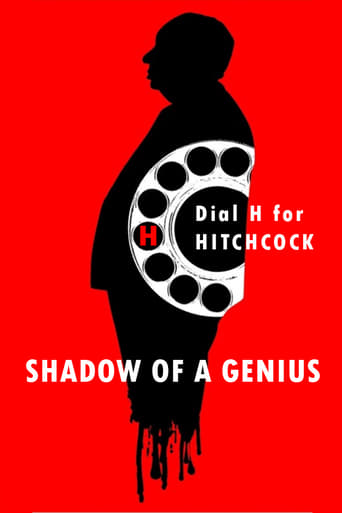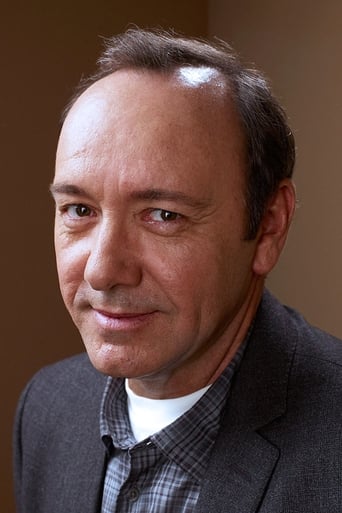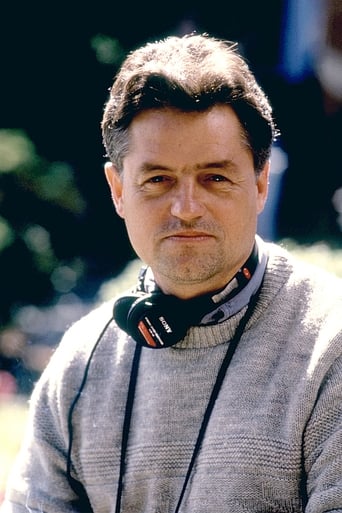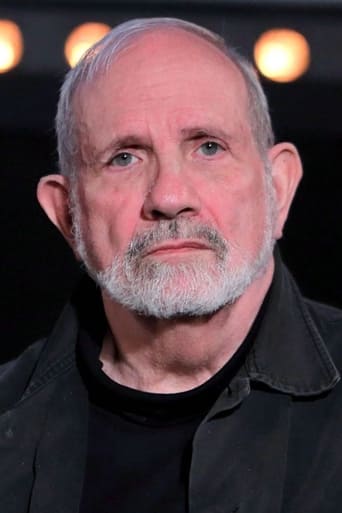

Hitchcock: Shadow of a Genius (1999)
This documentary is a fascinating look at the cinematic genius of Alfred Hitchcock. Briefly covering much of his early British works, the film primarily focuses on his American classics, such as "Shadow of a Doubt", "Notorious", "Rear Window", "Vertigo", "Psycho" and "The Birds". The movie also covers his television years and neatly examines the Hitchcock signature touches, from his inevitable brief cameo to his famous MacGuffin.
Watch Trailer
Cast


Reviews
So much average
It's no definitive masterpiece but it's damn close.
In truth, there is barely enough story here to make a film.
I enjoyed watching this film and would recommend other to give it a try , (as I am) but this movie, although enjoyable to watch due to the better than average acting fails to add anything new to its storyline that is all too familiar to these types of movies.
If you've been living under a rock for the past thirty years or so, you may not be that familiar with all things Hitchcock. But fans of the great director have seen much of this footage before--or at least similar interviews with participants in Hitchcock's films, to be vaguely familiar with most of the points accented here.Still, it makes for delightful viewing, especially if this is your first glimpse of this Canadian-made documentary that gives one a close-up look at Hitch's quirky personality, good humor and wry wit.There are times when it's painfully obvious that Hitchcock had all the charisma of a bump on a log or a stand-in-the-corner man at a party gathering who would rather observe than be put under the glare of a spotlight. This is especially true in some of the remarks made by those who knew him well and apparent from the many film clips, especially the home movies. Nevertheless, he seemed to rule well enough behind a camera.The treat is hearing what famous actors/actresses and screenwriters had to say about working with him. Among the most articulate: John Michael Hayes who did the screenplay for NORTH BY NORTHWEST, Norman Lloyd, Janet Leigh, Patricia Hitchcock (his daughter), Teresa Wright, Tippi Hedren, Joseph Stefano and others.It's clear that his wife's influence (Alma Reville) on his film-making was of utmost importance. If she didn't approve of a story, he never touched it. She was a film cutter that he met in England before he began his film career as a director and their marriage was evidently a very compatible one, according to daughter Patricia.Most interesting aspect of the whole piece: the discussion of the quintessential Hitchcock film, PSYCHO, with some of its most chilling scenes.Well worth watching.
Ted Haimes' subject for this fantastic documentary is the legendary Alfred Hitchcock, who had a long and distinguished career as a film director. He gave the English and American cinemas some of the best movies during the first three quarters of the twentieth century. Mr. Haimes takes us to examine the life and the genius of Alfred Hitchcock.We are introduced to people that worked with Mr. Hitchcock, like Farley Granger, Tippi Hedren, Teresa Wright, Janet Leigh, among others, and people that admired and were influenced by the man himself such as Robert Altman, Peter Bogdanovich, Robert Bayer, Wes Craven, Curtis Hansen, Brian DePalma, Jonathan Demme and Joseph Stefano, among others.The first part of the documentary deals with his early years in London. We are given a good account of how this great man worked during those first years and later on, as he came to Hollywood. Mr. Hitchcock's collaboration with Alma Reville, his wife, is one of the things that comes across as what made him get involved in projects because it was Ms. Reville who had a critical eye and saw where the best opportunities were for her husband to excel. We also hear from his daughter Pat, who followed her father's career closely.Two of the films that are given more time are "Vertigo" and "Psycho", both considered by most of the guests that speak in the film as two of the most accomplished movies of Hitchcock's career. They are examined with great care and analyzed with a great deal of intelligence, especially by Joseph Stefano, the screen writer of "Psycho". Credit is also given to Hitchcock's association with Bernard Herrmann who composed some of the best scores for the master's films. In fact, collaboration seems to be at the center of everything this great man did, which denotes the intelligence of Hitchcock since he clearly understood that movie making is a collaborative process.Thanks to Mr. Haimes for this most informative account on the life of a true genius: Alfred Hitchcock!
This might be a fine documentary to watch if you've never seen anything at all on Hitchcock before; it gives you the basic facts and a chronology of his career and all that. But for anyone with any actual familiarity with Hitchcock, this will all have been seen before.This documentary is basically a pedestrian retelling of Hitchcock's film life. It rarely dips beneath the surface. Surprisingly, the most interesting comments on Hitchcock's approach to film are made not by the directors and academicians but by actresses who have worked with him. But the documentary fails to shed any light on what makes Hitchcock important, or give any insights into his artistry. It just tells you he is important and artistic.I wouldn't say this was without any merit at all. There is an occasional interesting comment, or brief snippet of film, that is worthwhile. But it is very weak.
This film was re-monikered DIAL H FOR HITCHCOCK when I saw it recently on cable.We get it all here. Clips from the films. Commentary about his craft. Commentary about the personal impact he had on current film-makers. Personal insights from a few people who'd worked with Hitch. A brief biography blended in with a chronological survey of some of his career highlights. We also get Hitchcock himself; both in serious archival interview as well as entertaining appearances from his trailers and TV show intros. And montages. Glorious beautifully crafted montages. We get it all. Except for that compulsive-monster stuff you can only find in the tabloid-style book THE DARK SIDE OF GENIUS.I was very impressed by the montage sequences and how they artfully chose just the right images to blend with what the commentators were saying. It didn't hurt that Bernard Herrmann's score to VERTIGO was used, both for the long opening montage as well as the closing sequence.Commentators included several directors from today ... Wes Craven, Brian DePalma, Jonathan Demme, Robt Altman, Peter Bogdanovich.Would have been nice to get old footage of interviewed commentators from days of old ... folk that Hitchcock had worked with. The only ones left to interview were ... Norman Lloyd (the actor who took the plunge off the Statue of Liberty in SABOTEUR and whom collaborated closely on the 50's TV show ... he also had become a very close personal friend with Alfred and Alma)... Janet Leigh, who needs no introduction ... Tippi Hendren, ditto ... Teresa Wright, the nice young lady in SHADOW OF A DOUBT... and Joseph Stefano who wrote the screenplay to PSYCHO.Stefano's comments were very keen as he mused about where the hell such a civilized man as Hitchcock could have found the deep dark places of the human soul within himself to mine. His narration synched-up nicely with the montage, displaying short snippets of various characters in close-up, tortured souls, lonely souls ... as Stefano's comments were handed over to the voice track of Norman Bates: "we're all alone. Trapped like animals. In our own private cages."For Hitchcock aficionados, there might not be anything new to glean here. It covers old territory like explaining "The McGuffin" theory. But it doesn't go much into technical things like his montage-approach to editing ... or the pre-eminence of building a long anxious suspense sequence, compared to a brief sudden shock. (These kinds of things are covered more thoroughly in the 1970's docu series THE MEN WHO MADE THE MOVIES ... but when will we ever get treated to THAT again??) This is still a great retelling of his life and career in a fresh style, and a nice entertaining way to spend 90 minutes. In fact I got sucked into watching part of it a second time. But this (like Hitchcock's own work) is like a rollercoaster -- you can enjoy it over and over.




